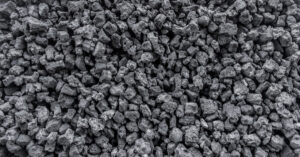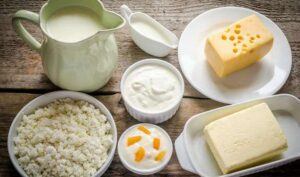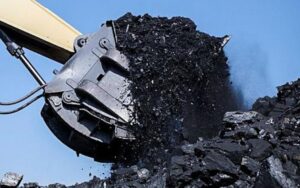
In January-October this year, Ukraine reduced imports of coke and semi-coke in physical terms by 20% compared to the same period last year, to 268,550 thousand tons.
According to statistics released by the State Customs Service (SCS) on Wednesday, coke imports in monetary terms decreased by 36.7% to $105.546 million during this period.
Ukraine exported 3.324 thousand tons of coke in 10 months of 2023, down 10.1% year-on-year. In monetary terms, it decreased by 21.6% to $774 thousand.
Exports were carried out to Moldova (100% of supplies in monetary terms), while imports were mainly from Poland (87.60%), Colombia (9.48%) and the Czech Republic (2.12%).
As reported, in 2022, Ukraine reduced exports of coke and semi-coke in physical terms by 98% compared to the previous year – to 3,856 thousand tons, and in monetary terms by 97.6% – to $1,011 million. The main exports were made to Hungary (42.63% of supplies in monetary terms), Georgia (37.69%) and Turkey (17.41%).
In 2022, Ukraine imported 359.192 thousand tons of coke and semi-coke, which is 54.5% less than in 2021. In monetary terms, imports decreased by 50.3% to $174.499 million. Imports were carried out mainly from the Russian Federation (43.43% of supplies in monetary terms, before the war), Poland (30.07%) and the Czech Republic (13.15%).
As a result of the war, a number of mines and coke plants are located in the territories temporarily not controlled by Ukraine.

In October 2023, Ukraine imported 6.08 thousand tons of dairy products, which is 27.8% more than in September and 35% more than in October 2022, which is the highest figure since March 2022.
According to the Ukrainian Agribusiness Club (UCAB), growth is recorded in all categories of dairy products, but the largest imports are cheese – 3.2 thousand tons. In addition, in October, the volume of butter imports doubled, reaching 619 tons, which is the highest figure since November 2021.
“In total, 48.89 thousand tons of dairy products were imported in 10 months of 2023, which is 6.1% less than in the same period last year, but at the same time, the value is 11.3% higher ($210.2 million),” the UCAB emphasized.
According to the association’s analysts, the volume of dairy exports remained stable for the second month in a row – 8.25 thousand tons, which corresponds to the same period last year. However, in monetary terms, the revenue decreased by 19% to $226.94.
At the same time, UCAB experts noted the intensification of demand in the global dairy market after a nine-month decline in prices. This is confirmed by the FAO index for October and the increase in trading on the Global Dairy Trade: the average value of the FAO Dairy Price Index in October was 111.3 points, which is 2.4 points (2.2%) higher than in September, but still 28 points (20.1%) lower than in the same period last year.
“In October, world prices for milk powder increased the most, mainly due to a sharp increase in import demand under both short- and long-term contracts. An additional factor in the growth of prices for dairy products was the limited supply of milk in Western Europe and some uncertainty about the impact of weather conditions on production in Oceania,” explained UCAB analyst Maxim Hopka.
World butter prices rose under the influence of stronger retail prices before the start of the winter holidays in Western Europe and increased import demand from Northeast Asia. At the same time, cheese prices, on the contrary, slightly decreased due to the weakening of the euro against the US dollar and the growth of export supply from Oceania, UCAB summarized.

Initial registrations of used passenger cars imported to Ukraine from abroad in October 2023 increased by 41% compared to October 2022 – to 21.3 thousand units, which is 1% more than in September this year, the Ukravtoprom association reported on its Telegram channel on Monday.
According to the association, the largest share in the segment of imported used cars in October consistently belonged to gasoline cars – 44% (in September, too), followed by diesel cars – 31% (unchanged), electric cars – 17% (16%), cars with LPG – 5% (unchanged) and hybrids – 3% (4%).
Volkswagen Golf remains the leader in registrations (1544 units), and the top five remained unchanged: Renault Megane (1200 units), Skoda Octavia (960 units), Volkswagen Passat (785 units) and Nissan Leaf (573 units).
The TOP-10 of this market in October also included Volkswagen Tiguan (451 units), Tesla Model 3 (442 units), AUDI A4 (416 units), Ford Focus (411 units) and Nissan Qashqai (404 units).
The average age of used cars that switched to Ukrainian license plates in October is 9.5 years.
Overall, in January-October this year, 169.3 thousand used cars imported from abroad were registered for the first time in Ukraine, which is 3.4 times more than the number of new cars sold in the same period.
As reported, in 2022, Ukrainians registered 388.5 thousand imported used passenger cars, which is almost a quarter less than a year earlier, but more than 10 times more than the market for new passenger cars.

In October 2023, Ukraine increased imports of cheese by 70% and butter by 14% in monetary terms, the press service of the Union of Dairy Enterprises of Ukraine reported.
According to the report, in October of this year, 27 thousand tons of cheese were imported compared to 28.6 thousand tons in the same period last year, but more money was spent on its import – $160 million against $150 million.
“Imports of butter increased significantly, by 62% by weight, and the share of expenditures on it increased 10 times compared to last year,” analysts stated.
They noted that in the dynamics of cheese imports in the last three months there has been a moderate increase, which indicates increased competition in the domestic cheese market. The 14-fold increase in butter imports over the same three months led to a negative balance in international trade.

Ukraine in January-September this year reduced imports of coke and semi-coke in physical terms by 33.2% compared to the same period last year – to 221.599 thousand tons.
According to statistics released by the State Customs Service (SCS), coke imports in monetary terms for this period decreased by 45.9% to $88.978m.
Ukraine exported 2,750,000 tons of coke in the first nine months of 2023, down 25.6% from the same period last year. In monetary terms, it decreased by 34.4% – to $647 thousand.
Exports were made to Moldova (100% of shipments in monetary terms), while imports were mainly from Poland (86.81%), Colombia (10.23%) and the Czech Republic (2.01%).
As reported, Ukraine in 2022 reduced exports of coke and semi-coke in physical terms by 98% year-on-year to 3.856 thousand tons, in monetary terms by 97.6% to $1.011 million. The main exports were to Hungary (42.63% of shipments in monetary terms), Georgia (37.69%) and Turkey (17.41%).
Ukraine imported 359.192 thousand tons of coke and semi-coke in 2022, which is 54.5% less compared to 2021. In monetary terms, imports decreased by 50.3% to $174.499 million. Imports were mainly from Russia (43.43% of supplies in monetary terms, before the war), Poland (30.07%) and the Czech Republic (13.15%).
As a result of the war, a number of mines and coke plants are located in territories temporarily outside of Ukraine’s control.

The Ministry of Agriculture and Development of Albania has approved the form of international veterinary certificate, which the State Service of Ukraine for Food Safety and Consumer Protection prepared in cooperation with the Ministry of Foreign Affairs for the export of heat-treated dairy products, the press service of the State Service of Ukraine for Food Safety and Consumer Protection reported.
According to the report, currently it is possible to export three types of products to Albania: poultry, meat semi-finished products and heat-treated dairy products for nutrition.
On the official web portal of Gosprodpotrebsluzhba published the form of international certificate for the export of Ukrainian dairy products.
In addition, the agency reminded that in order to export food products, the market operator must submit a request for unscheduled veterinary control, which is carried out according to the requirements of the country of destination, to the main departments of the State Food and Consumer Service in the regions and Kiev, as well as its interregional branches at the state border, through which the products will be exported.
To the application of the market operator it is necessary to attach copies of the foreign economic agreement/contract; documents certifying the existence of special requirements established by the competent authority of the country of destination of the cargo (if any); documents certifying the characteristics of the cargo of food products and the vehicle (if any – invoice, CMR, commodity-transport specification of the food product).
The relevant territorial authority shall issue the international certificate on the working day after receipt of the market operator’s application.